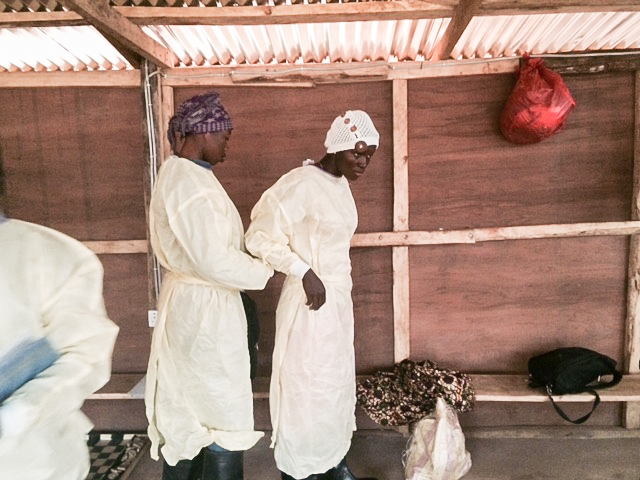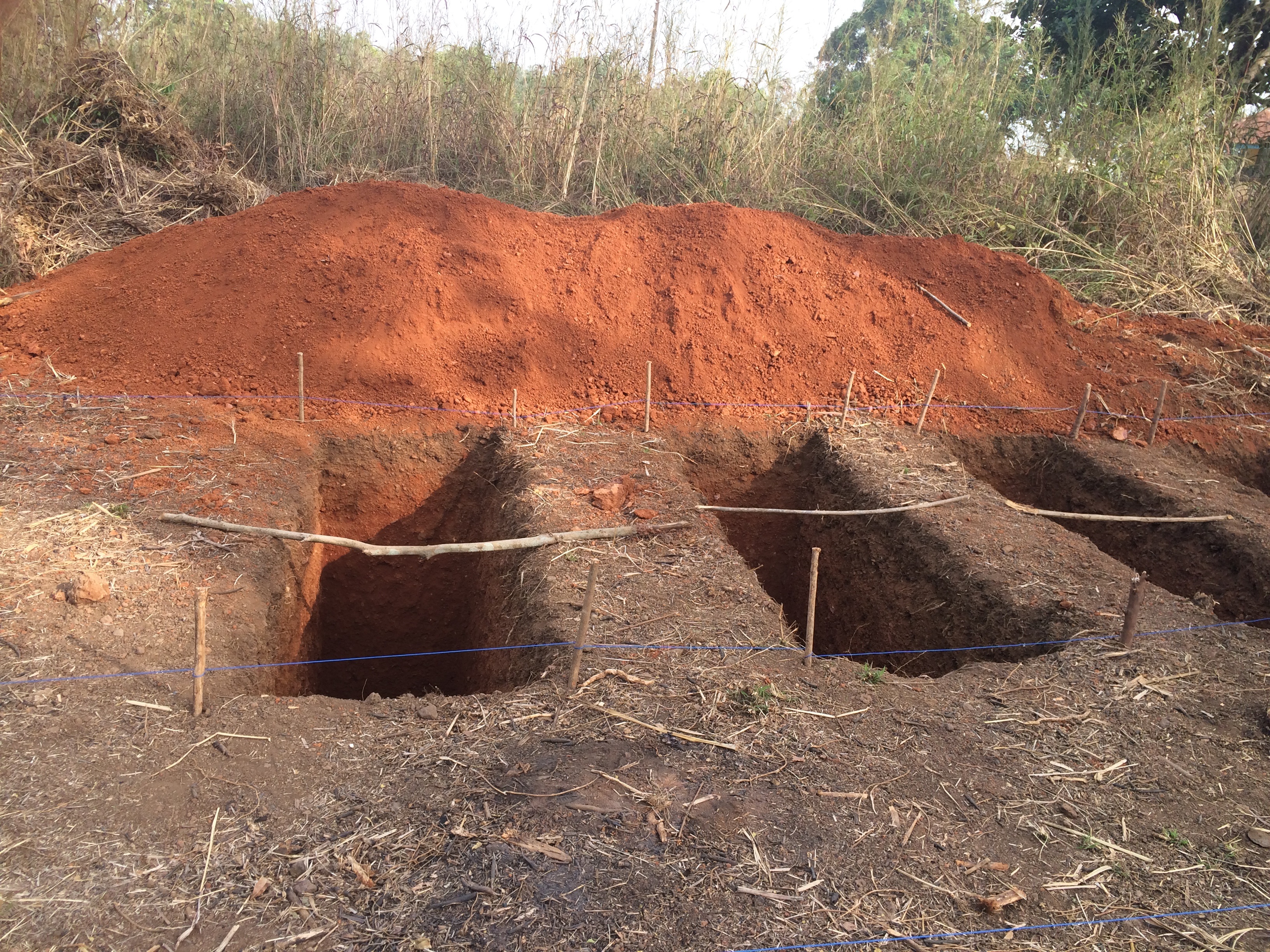Ebola Crisis: On leaving Sierra Leone

Catherine Mahony, CAFOD’s Humanitarian Coordinator for West Africa, has been working on Ebola in Sierra Leone for the last three months. She reflects on coming home.
Donate to CAFOD’s Ebola crisis appeal
This week I’ll be taking the boat to the airport to leave Sierra Leone, three months to the day since I arrived.
I remember well the apprehension I felt when I first came in on that boat, mainly at the enormity of the task and the scale of the crisis.
In October last year we were preparing ourselves for the possibility that 1.4 million people would be infected with Ebola by the end of the year if we didn’t massively step up our efforts.
As of the 25 January, the World Health Organisation estimates that the cumulative confirmed, probable and suspected cases across Sierra Leone, Liberia and Guinea stands at 21,724 and the graphs finally seem to be flattening out, showing fewer cases per day. It’s still too many lives lost, but thankfully not our worst case scenario.
At last, districts in Sierra Leone are crossing the ‘Ebola free’ threshold, having passed 42 days without a new case. I feel a sense of relief that we were able to prevent the worst and our optimism albeit small is allowed to grow a little every day.
So many people have made an extraordinary effort to get us to this point: the local health workers who selflessly stepped up to care for the sick and dying, 221 of whom here in Sierra Leone lost their lives to Ebola; the brave men and women who volunteered to join burial teams and dig graves, every day facing the strain of grieving families; and the people across England and Wales who’ve generously donated to CAFOD.
I’ve been gladdened by the messages of CAFOD supporters – from the pharmacist in Dalston who gave our staff free thermometers, to the CAFOD coffee morning organised in Hexham and Newcastle diocese to raise money for our response. This generous support has provided over £1.5 million pounds which has been critical in stopping the spread of Ebola, and helping affected families recover.

Safe burials
It’s been a privilege to work with our Sierra Leone team and Caritas partners, and I’m astounded by how much we’ve achieved in the three months I’ve been here: We’ve trained 60 burial staff working in six teams, who have since 21 January conducted 402 safe and dignified burials in the north of the country. We’ve rolled out an intensive Ebola awareness training programme especially designed for faith leaders, working with 1,884 priests, imams, pastors and women active in faith communities. Already they’ve reached nearly seventeen thousand people, who learn about Ebola from a trusted and respected source, and have safe practice reinforced every week in their mosque or church.
And two hundred households kept in quarantine will receive vital food packages and support to replace household items that may be destroyed in the decontamination process.
In some ways, I find it hard to reflect on my time here, because I found, like so many others, the only way to deal with things was to roll up my sleeves and get on with the job. There were moments when despite that, the gravity and terrible sadness of what we were doing crept into some of the essential practical tasks that we needed to carry out.
Please pray for all those affected by Ebola
I visited a grave digging team to learn how to plot cemeteries – I was keen to see how we could map out the space as effectively as possible. Inspecting the strings and sticks criss-crossing the field, I scribbled notes about dimensions and time taken to dig six feet into the stony ground. As I asked why some rectangles were bigger than others, I felt a terrible pang as I realised that I was standing on a patch of grass that would soon become a child’s grave, and that there were twenty more such spaces stretched out in front of me.
 I remember inspecting grave markers to check for vital information and legibility of the handwriting, and taking a picture for the record. I had to stop and really register what I was seeing: the grave of Morlai, a baby girl who had died in October last year, aged eleven months.
I remember inspecting grave markers to check for vital information and legibility of the handwriting, and taking a picture for the record. I had to stop and really register what I was seeing: the grave of Morlai, a baby girl who had died in October last year, aged eleven months.
Able to touch people again
When I return home, I will be able to touch people again – it’s something you miss here: no handshakes, no hugs, and no squeezes of affection that go such a long way to make you feel connected.
It’s a gradual realisation that something is missing from your life that has given me a glimpse of the isolation that Ebola has imposed on people here.
I’m also a little nervous about how people will treat me when I return home. Even though the work that we have been doing is low risk, some friends in the UK have requested that we don’t meet for three weeks when I’m back. I know there is no need for a quarantine period but I understand, they’re afraid and I don’t want to make them feel uncomfortable.
Again it’s a small insight into the rejection and stigmatisation that Ebola survivors and response workers have faced here, as people have been thrown out of their homes and ostracized by their communities.
Our sensitisation work will challenge this, promoting compassionate, safe behaviour that encourages people to report cases so that we can quickly reach zero new cases.
Donate to CAFOD’s Ebola crisis appeal
Ending Ebola goes beyond eradicating this appalling disease, it extends to tackling extreme poverty that allowed it to ravage this beautiful country in the first place.
We must not walk away, the Sierra Leonean people will need our support for the longer term to help them rebuild their lives.
Thy kingdom come; Thy will be done on earth, as it is in heaven.
Catherine Mahony is CAFOD’s Emergency Response Coordinator for West Africa
Reblogged this on CAFOD Nottingham.
So touching, Just reading about this brought tears to my eyes especially the part that talks about the grave for that 11 month old baby. So sad. Keep the good work Catherine Mahony